Akka Memory
Durable, in-memory, and sharded data
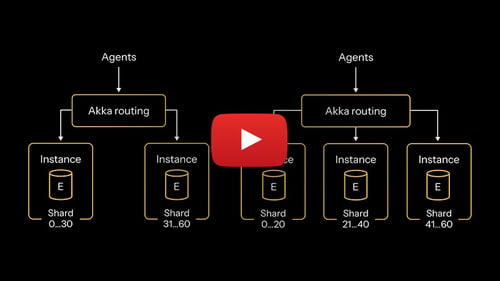
Akka Memory - Overview (3 mins)
Essential for context engineering
Akka Memory provides durable, in-memory, and sharded data for AI agents, enabling superior context engineering—structuring and optimizing agent information to enable effective and reliable performance of complex tasks across multiple interactions over time. Akka Memory provides your AI with comprehensive short-term and long-term recall, essential for coherent, personalized, and informed interactions.
| Prompts | Manage system and user prompts outside of code with versioning and rollback. |
|---|---|
| User input | Integrate queries and requests with semantic knowledge. |
| Short-term memory | Maintain situational awareness and conversation history through past interactions between users, agents, and tools. |
| Long-term memory | Persist semantic knowledge, skills, and retrieved data across users, sessions, agents, and systems. |
| Knowledge retrieval | Access dynamic information through connectors to vector databases, transactional databases, brokers, or APIs. |
| Tool schemas | Access dynamic information from external systems through functions, tool calls, and MCP servers. |
| Workflows | Guide agents through complex processes with workflows that persist their call stack on every step. |
| Compaction | Optimize information for LLM context windows and token consumption. |
| Evaluation events | Capture every agent event and context sent to the LLM to evaluate context effectiveness |
Durable event-sourced memory

Subscribe to memory
Agents can subscribe to any event or changes in memory using Akka Streaming, enabling adaptive behavior in response to real-time environmental changes.
Akka Memory tracks state with an event-driven architecture, recording every change as an immutable fact. These events can be replayed for recovery, replicated for resilience, broadcast for real-time updates, or projected into custom read models.
Developers can create multi-memory queries using Views that optimize read access or define custom subscriptions to memory change events through Akka Streaming.
Sharded and in-memory for <10ms writes
Data sharding
App data is partitioned across in-memory, durable nodes.
Akka routes user requests to the correct instance.
Data rebalancing
Data shards are re-balanced as the
number of runtime nodes changes.

Traceable and auditable
Capture, review, and replay every memory interaction. For agents, trace user, tool, and LLM conversations. For workflows, trace transitions, and call stacks for long-running processes. Akka stores memory events in an encrypted, tamper-evident record for audit, compliance, and deep system analysis.
Intrinsic to agents
Agents, workflows, and streams get memory automatically, without requiring developers to program state or persistence logic. Developers can also create their own memory objects that are shared across users, sessions, agents, and systems.
Part of the platform
Akka Memory is part of the Akka Agentic Platform, which provides everything needed to build, run, and evaluate agentic systems. This includes structured, goal-directed agents with Akka Agents, durable execution with Akka Orchestration, and real-time data handling with Akka Streaming.
Akka Memory is high-performance, durable, and accessible both locally and across regions.
Additional resources
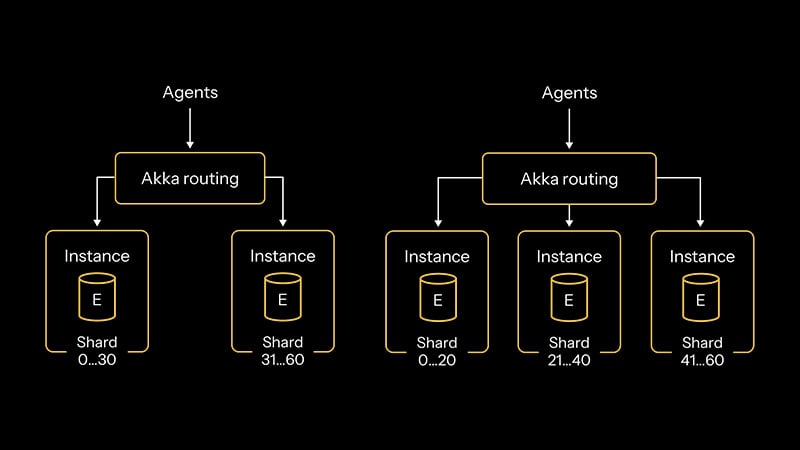
Akka Memory: Durable, in-memory, and sharded data
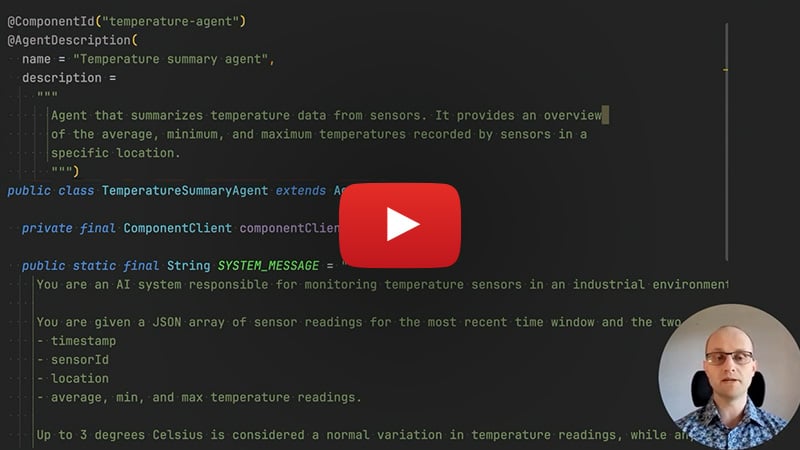
Demo: Temperature monitoring agent


